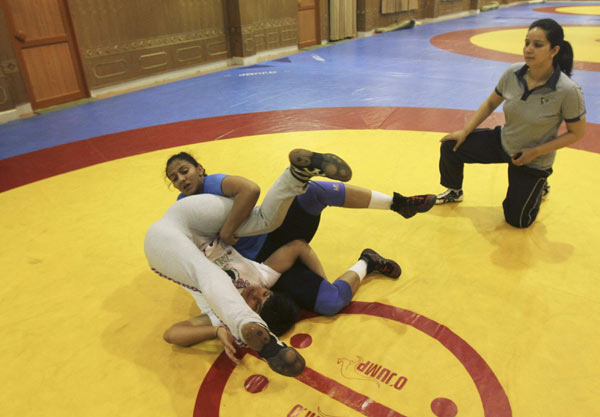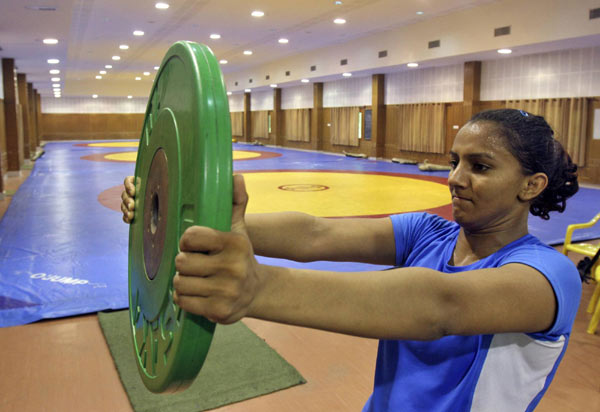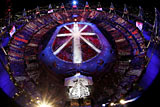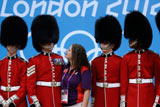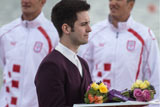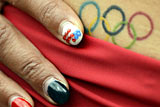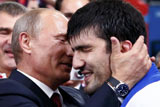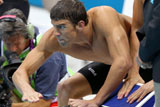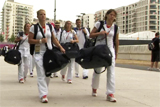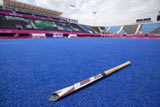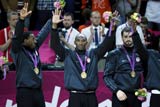
Grappling with gender bias, Geeta heads to London
Updated: 2012-05-22 16:44:32
(Agencies)
|
|||||||||||
PATIALA - As Geeta Phogat completes her sprint at a sprawling sports campus in Punjab state, one of her coaches nods approvingly at her stopwatch, another rushes to check her pulse, and a third ushers her toward the gym for a bout of wrestling.
Such attention and encouragement is routine for a top athlete, but it is unusual for women from Geeta's village in the northern Indian state of Haryana.
It is rare for a girl to have a life outside her home.
"In my village, girls have limited opportunities," says 23-year-old Geeta, the first female Indian wrestler to qualify for the Olympics. "If they get admission in a college, only a few households would allow them to go for further studies."
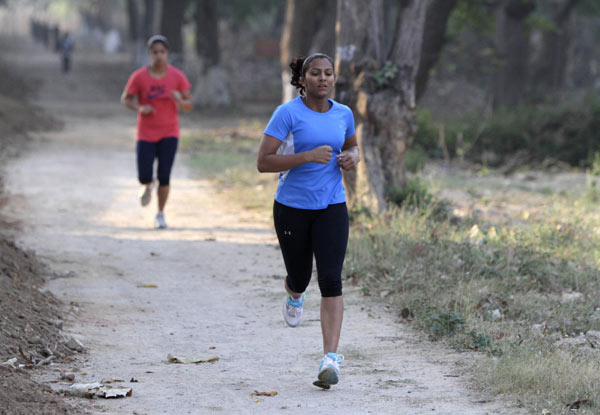 |
|
Indian wrestler Geeta Phogat jogs during a practice session outside the Netaji Subhas National Institute of Sports in Patiala in the northern Indian state of Punjab May 5, 2012. [Photo/Agencies] |
When Geeta and her wrestler-sisters began training, they were ridiculed by the community.
"They said nobody will marry us because we would have disfigured ears," says Geeta, pointing to her cauliflower ears, a common condition among wrestlers in which the outer ear is swollen.
Twelve years later Geeta is a local celebrity. Ask for the house where Geeta lives and people several kilometers away can direct you to it.
Tanned and lithe, Geeta stood with her legs apart and her muscular arms folded across her chest, as she spoke to Reuters at her gym. It was a confident posture, unlike that of many of the women from her village who were too shy to speak to journalists.
Her home state of Haryana is notorious for its gender bias and sex-selective abortion. A girl child is considered so undesirable, and they are so frequently aborted, that a 2011 census found there were only 877 women for every 1,000 men. The national sex ratio is 940.
Brought up as boys
Girls are often viewed as a financial burden because of the marriage dowry given by the bride's family to the groom - a social custom widely practised despite being illegal in India.
"In my village earlier, when families found they were going to have a girl child, they used to get an abortion," says Geeta's younger sister, Ritu, who is also a wrestler.
An adolescent girl in Haryana is typically expected to do household chores and is often married by the age of 15, says Anjali Makhija, who works for the Institute of Rural Research and Development.
Most women are expected to do chores such as bathing livestock, milking cows or working in the fields. Education is not a priority.
Hardly any of Geeta's childhood friends went to college or have a job. She had an unconventional upbringing as her father decided to coach her in kushti, traditional Indian wrestling, which is usually fought on a mud surface.
"If I was not a wrestler, or if my father was not a good coach, I would have been married by now," she says.
Instead, Geeta and her sisters were brought up as boys with her father disapproving of long hair or feminine clothes.
"We used to wear a track suit and T-shirt while training," says Geeta, who has grown her hair longer now and has a ponytail. "But that did not go down well with the villagers, because women are usually supposed to wear salwar kameez (a long shirt paired with loose pyjamas)."
Geeta now trains in a fully equipped, air-conditioned gym at Asia's largest sports institute, which includes a palace built by the erstwhile Maharaja of Patiala.
Medal Count |
||||
| 1 | 46 | 29 | 29 | |
| 2 | 38 | 27 | 22 | |
| 3 | 29 | 17 | 19 | |
| 4 | 24 | 25 | 33 | |
| 5 | 13 | 8 | 7 | |
| 6 | 11 | 19 | 14 | |
